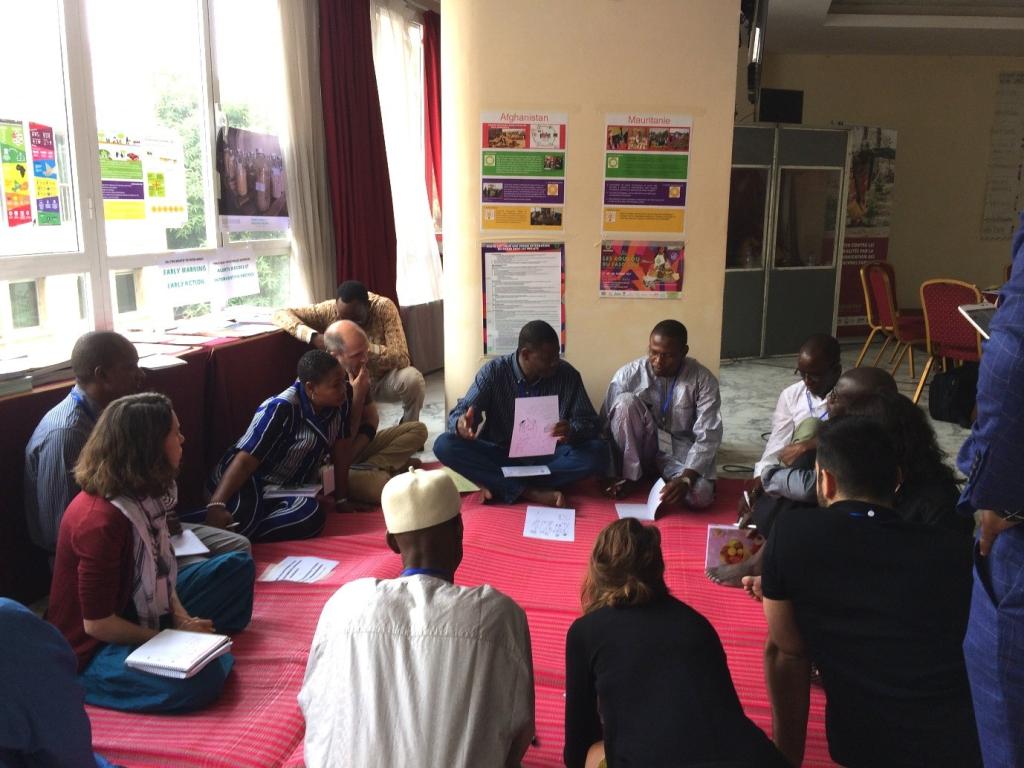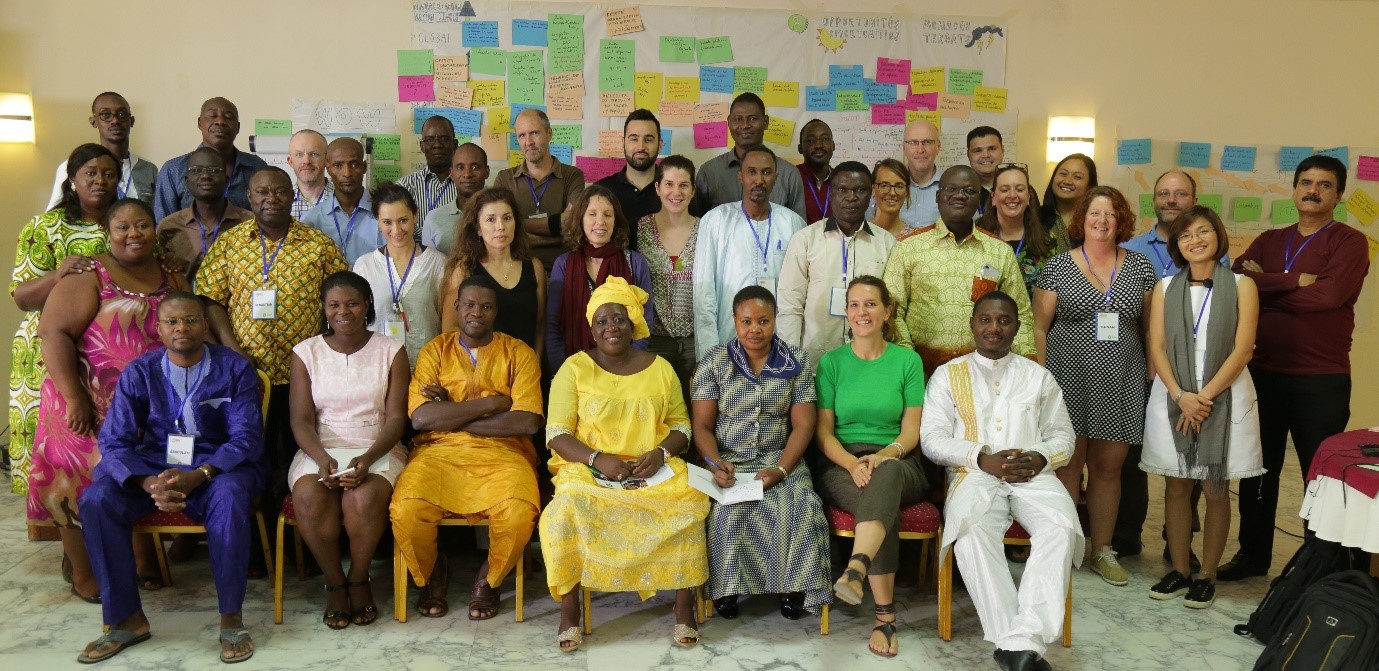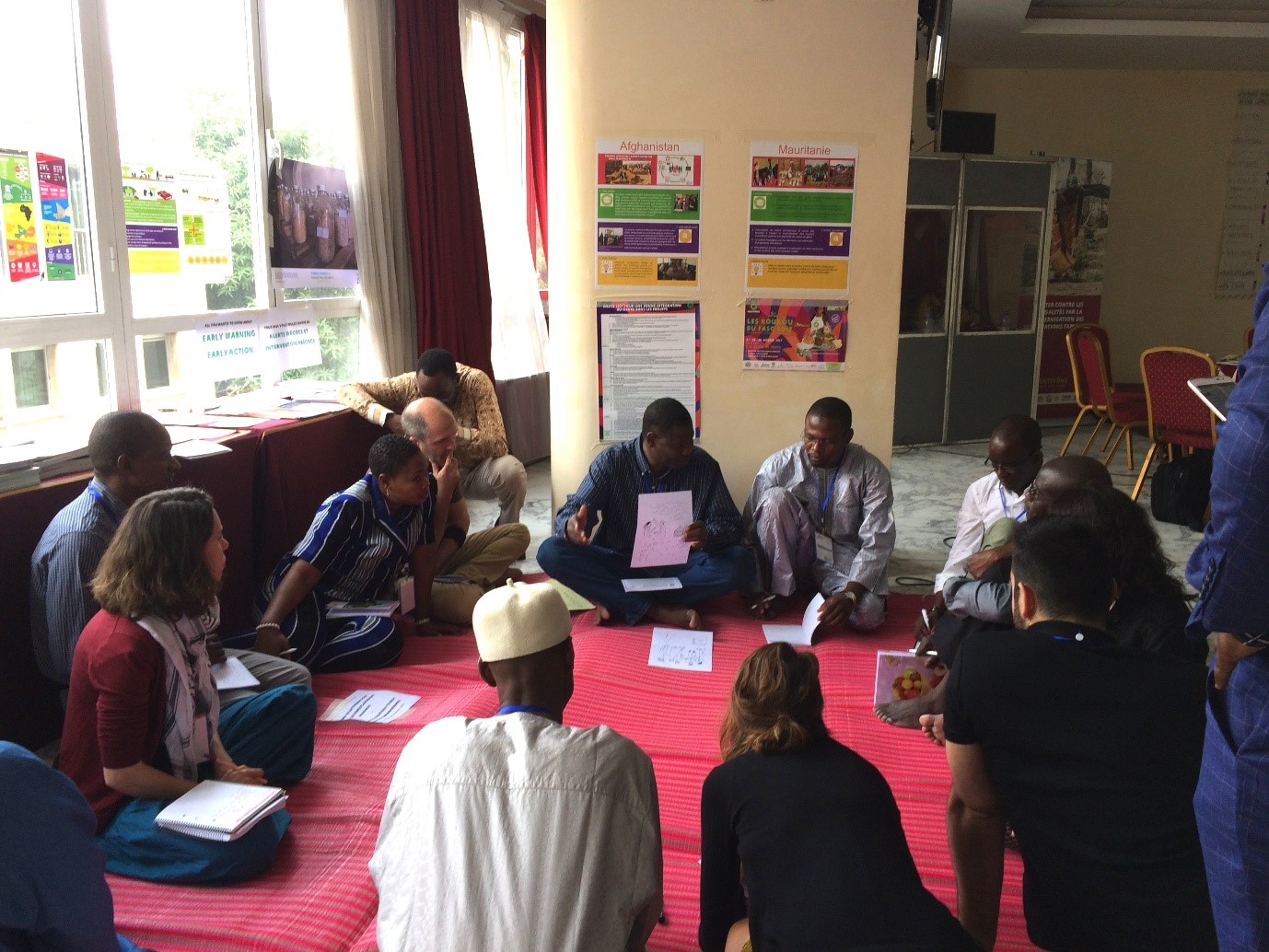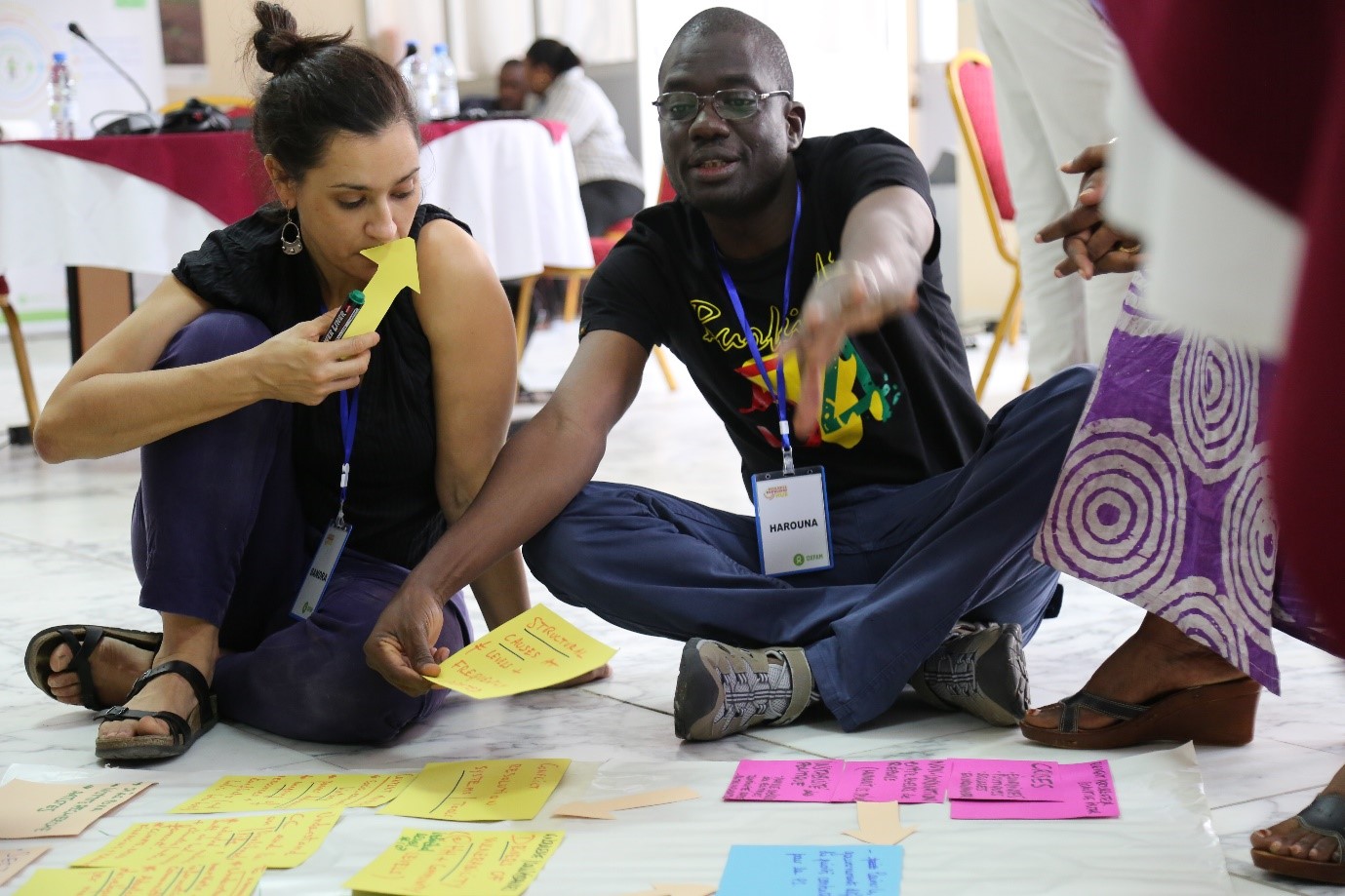Solutions for a resilient West Africa: projecting our experience into the future

By Amadou Sidibe, Postdoctoral Researcher, ICRISAT
The workshop ‘Solutions for a resilient West Africa: projecting our experience into the future’ took place from 28 to 30 November, 2017 in Dakar, Senegal. Organised by Oxfam, the purpose of the workshop was to discuss new ideas and perspectives for a resilient development across West Africa through the exchange of knowledge, practices and experiences among participants.

Group photo of participants at the 'Solutions for Resilient West Africa' workshop in Dakar, Senegal. (Photo by Charlotte Masselot, Oxfam West Africa)
Three objectives were set to achieve that goal: 1) Develop a concrete and hands-on understanding of building resilience in West Africa; 2) Identify the opportunities for future collective actions for more impact of our resilient development endeavours; 3) Enlarge our alliances and spheres of influence for more connection and efficient collaboration within and beyond Oxfam.
The ‘Inspiration’ Day
On the first day, participants shared their experience of all that is already being done for a resilient West Africa: how it is done, the challenges that they are facing, and the successes that can be showcased.
These discussions and sharing of experiences were organised around three thematic areas: 1) means for a resilient livelihood; 2) social and economic justice for resilience; and 3) community and system resilience.
The discussion was aimed at responding to the following questions:
1) How are livelihoods and resources for well-being (natural, financial, social, physical and human capital) recovered, sustained and enhanced in the face of shocks, stresses and uncertainty?
2) How do socio-economic empowerment and the inclusion of all (particularly women, youth and the most vulnerable) in development dynamics fulfil the needs and aspirations of everyone, considering their differentiated vulnerabilities and capacities?
3) How can the effectiveness of governance and leadership (from local to national, up to regional and global) be strengthened to support the resilience of populations and systems?
The three experiences that were highlighted came from Oxfam offices in Niger, Mauritania and Chad. Participants went around to listen to and discuss stories of resilience building in relation to conflicts and competing claims over natural resources, diversification of income sources for the population and vulnerability risks assessments.

Oxfam Niger sharing a story and lessons of conflict settlement between a farmer and a pastoralist over natural resources. (Photo by Charlotte Masselot, Oxfam West Africa)
The ‘Co-Creation’ Day
The second day was called ‘Co-Creation’ and aimed at using the knowledge and experiences shared to envision and co-create a desirable future. It started with a panel discussion that incorporated issues considered as disruptors to the resilience of West Africa. These included the issues related to civil protection in the face of natural events, demography, migration, security and conflicts in the regions and the overarching issue of the role research can play in the complex process of building resilience in these conditions.
As one of the five panellists, I presented the ASSAR research experience in Ghana and Mali with a specific focus on the research-into-use dimension. I specifically highlighted the way we engage stakeholders to co-generate knowledge but also to make our research findings a useful tool for policy and decision making. The presentations by the five panellists were followed by a Q/A session with the participants.
All the discussions were enriched with the contribution of participants from Asia, who were invited to share their experiences.
The ‘Action’ Day
The third day was labelled ‘Action’ and aimed at charting the way forward for efficient and collective resilient building in West Africa.

Group discussion on the theory of change for collective action. (Photo by Charlotte Masselot, Oxfam West Africa)
The three days of intensive experience sharing and exchanges on the different facets of a resilient West Africa are a testimony of the diversity of activities taking place across West Africa, at time in silos, with the aim to contribute to resilience of people and systems in the face of climatic and non-climatic risks. One of the relevant questions to discuss is therefore the type of synergy required to build among all these compartmentalised activities for a resilient West Africa. If there is a consensus that resilience is a collective endeavour, the way to achieve this is not always obvious.
In this regard, the role of Oxfam as an interface for the bringing together of diverse resilient activities across West Africa was highlighted.
One of the suggestions was that research institutions, such as ICRISAT and other research and academic institutions, should build institutional collaborations with Oxfam. This would allow them to use the international status of Oxfam to facilitate the science-policy dialogue, and have their research findings used for Oxfam influencing activities. It will also create the opportunity for Oxfam to sustain influencing activities that may exceed the lifespan of research projects.